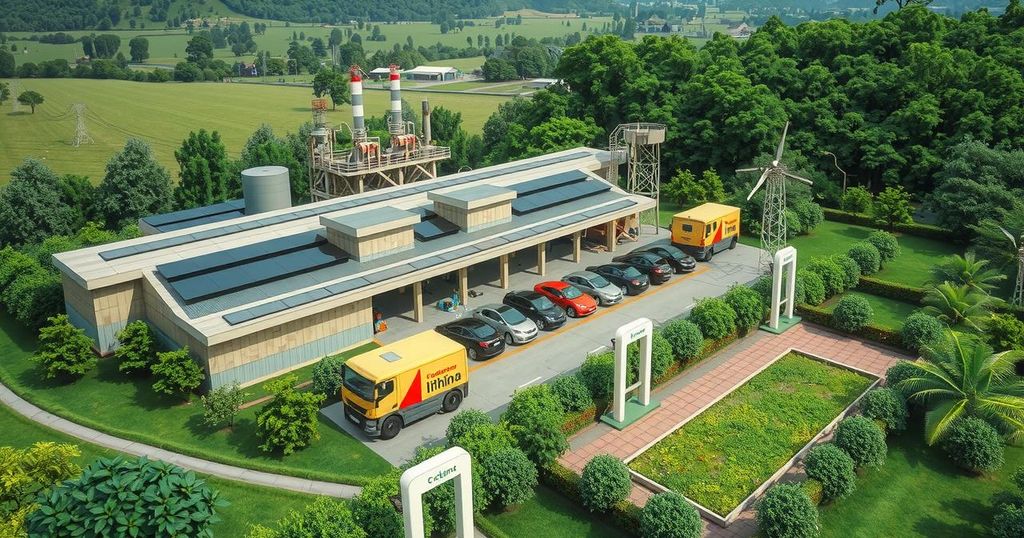Chinese Companies Transform Nigeria’s Lithium and EV Sector

- Chinese companies are investing heavily in Nigeria’s lithium sector.
- Two major lithium processing plants are set to open this year.
- Jiuling and Canmax lead the charge with significant funding.
- Nigeria’s lithium has high grade and promising potential for exploration.
- Government incentives are drawing foreign investment into the sector.
Chinese Companies Transform Nigeria’s Electric Vehicle Industry
Chinese investment in Nigeria’s lithium processing is reshaping the electric vehicle landscape as companies from China make significant strides in this West African nation. Two major processing factories are set to commence operations this year, both largely funded by Chinese investors. The first, a $600 million facility from Jiuling Lithium Mining Company, is progressing in northern Nigeria, while a second plant, developed by Canmax Technologies at $200 million, will be located just outside the capital, Abuja, and is slated to start operations in the third quarter of the year.
Shifting Landscape in Lithium Investment
These new ventures highlight an increasing trend where Chinese firms hold the majority stakes, covering over 80% of the investments, whereas local entities manage the remaining share. Jiuling, established in 2011, has become a notable global supplier of lithium salts essential for electric car batteries, with clients that include giants like Tesla. Meanwhile, Canmax has shifted focus toward lithium processing after years of supplying battery materials, adding to the burgeoning Chinese interest that now totals about $1.3 billion in Nigerian lithium facilities.
Nigeria’s Untapped Lithium Potential and Government Incentives
Currently, Nigeria does not rank among the top performers in global lithium production which is predominantly led by Australia, Chile, and China. However, the country is deemed to have a rich lithium potential as indicated by early exploration results and mapping efforts by the Nigerian Geophysical Survey Agency. The Nigerian government is excited about the high-grade lithium deposits found, with some areas showing up to 13% lithium oxide, an attractive quality for investors. Additionally, incentives like a five-year tax holiday and exemptions on import duties present a compelling case for international businesses to invest in Nigeria’s local lithium processing and electric vehicle sectors.
The growing involvement of Chinese firms in Nigeria’s lithium processing reflects a new phase in the national strategy to exploit its mineral riches and move towards a sustainable electric vehicle market. Local firms are also making their mark with significant discoveries and production plans. This convergence of investment, innovation, and government support could make Nigeria a significant player in the electric vehicle landscape in Africa, though the path ahead will require overcoming longstanding infrastructural challenges.




